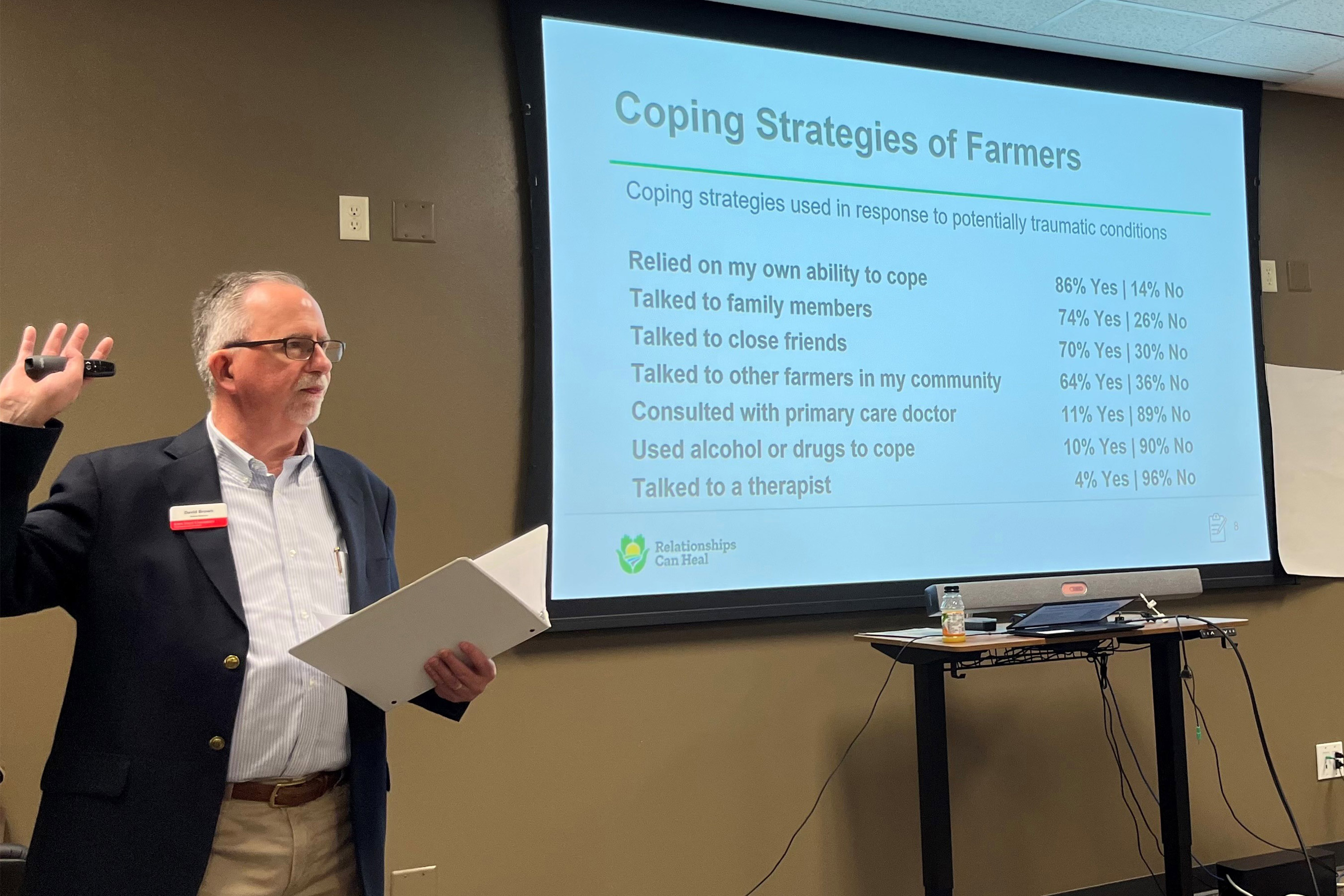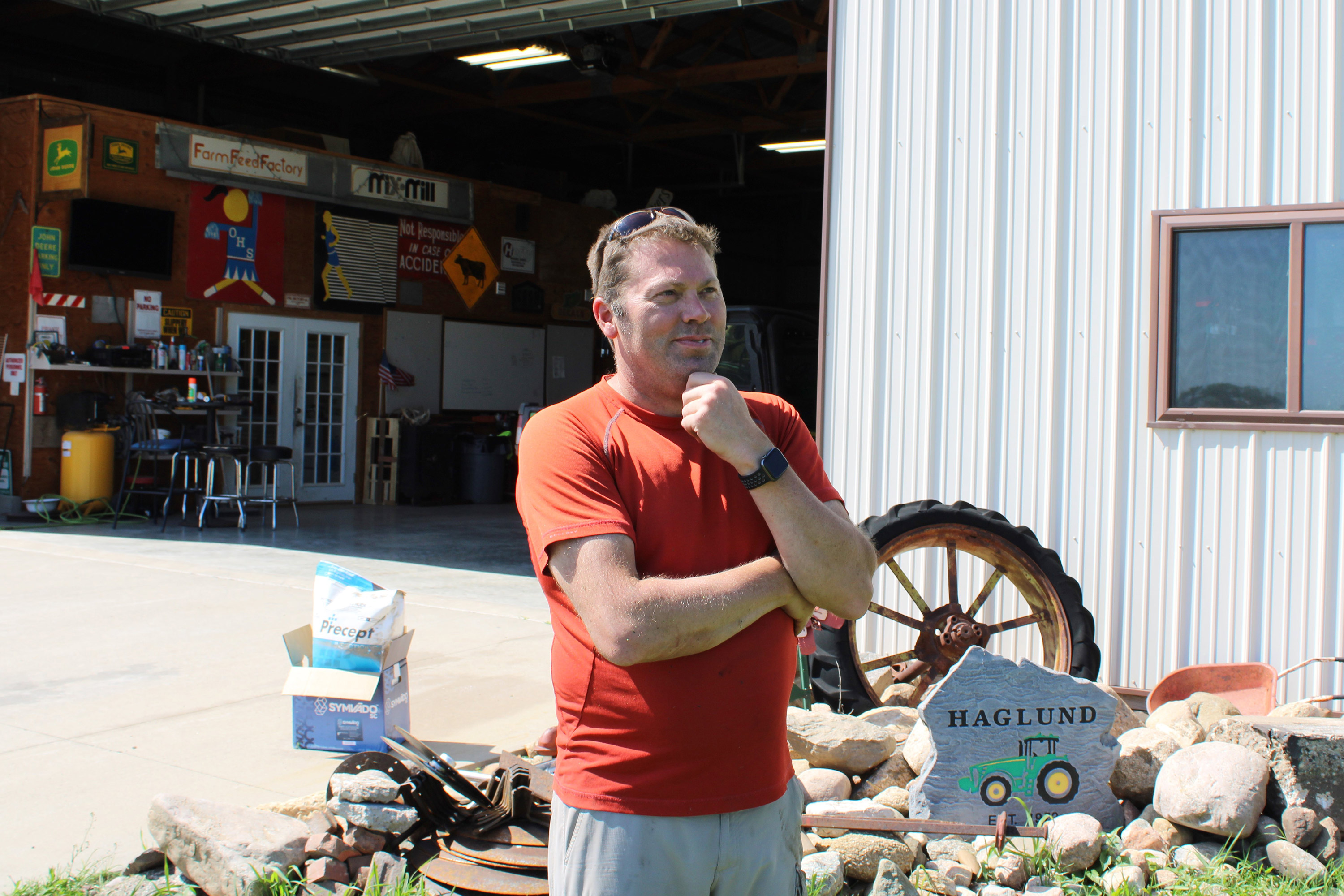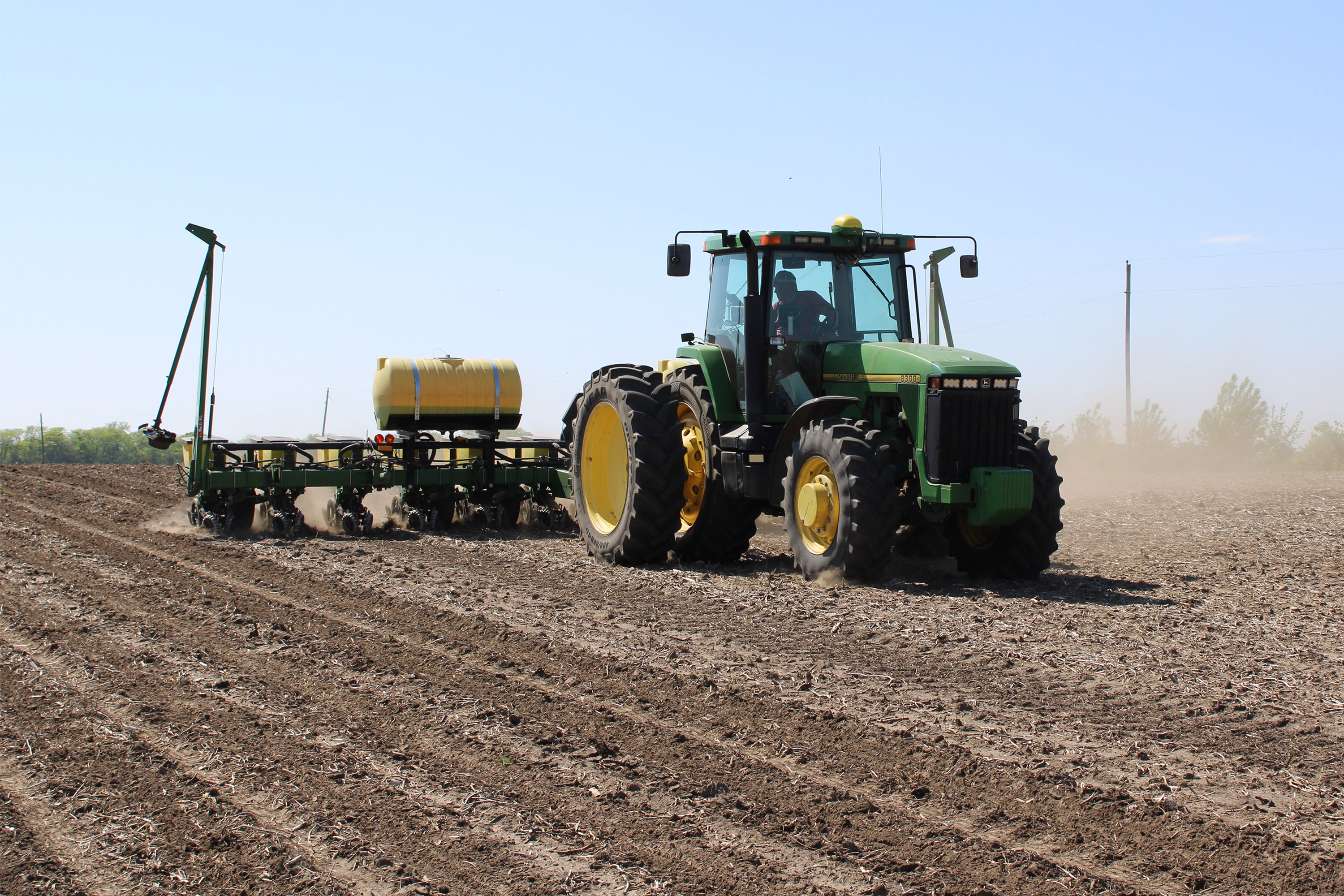If you or someone you know may be experiencing a mental health crisis, please contact the 988 Suicide and Crisis Lifeline by dialing 988 or texting HOME to 741741 to reach the Crisis Text Line.
GRINNELL, Iowa — The agricultural co-op here becomes a center of hope each spring, where farmers buy seeds and fertilizer for summer crops and turn to for tips on maximizing their corn and soybean harvests.
But on a recent morning, a dozen mental health experts gathered at the Key Cooperative Agriculture Center to discuss why so many farmers are quietly suffering from untreated anxiety and depression.
The study concludes Suicide is unusually common Researchers don’t think this is due to the high number of farmers with other risk factors, such as: Rural address And access to guns.
This tragic trend has caught the attention of the U.S. Department of Agriculture, which is sponsoring sessions like the one at Grinnell to help health professionals learn how to talk to farmers about the pressures they face to make a living from the land.
“A lot of them are born farmers. They don’t have a choice,” family therapist David Brown explained to session participants. Brown noted that many farms have been passed down for generations, and the current owners believe that if they fail, they will disappoint their grandparents, parents, children and grandchildren.
Brown, who works for Iowa State University Extension and Outreach, led the training in Grinnell. Brown said farmers’ fates depend on factors they can’t control. Will the weather be favorable? Will world events cause prices to spike or crash? Will political conflicts lead to changes in federal farm support programs? Will farmers get injured or sick and be unable to do vital work?
Brown said research shows many farmers are reluctant to seek mental health care, in part because they believe therapists and doctors cannot understand their lives.

Tina Recker, a mental health therapist from northeastern Iowa, attended the training. She has lived on a farm and has seen how the profession can become one’s entire identity. “It’s farm, farm, farm, farm,” she told the group. “If something goes wrong on the farm, it’s your whole world.”
It is difficult to estimate how much of the increased suicide risk among agricultural workers is attributable to their occupation.
One reason for this high percentage is that many farmers are middle-aged or older men. More at risk “But it’s definitely more widespread than that,” said Edwin Lewis, the USDA administrator overseeing efforts to address the situation.
Grinnell’s training sessions Farm and Ranch Stress Support NetworkLewis said $10 million a year is spent on the program, which also funds counseling hotlines and support groups.
Jason Haglund sees the issue from many angles. He’s a mental health advocate and a part-time farmer near the central Iowa town of Boone. He and his brother-in-law grow corn and soybeans on the 500-acre farm where Haglund grew up. His family has been farming in the area since the 1880s; his parents continued to farm despite going bankrupt during the 1980s farm crisis, and he’s happy to embrace his role as steward of their estate.
Haglund is trained as an alcohol and drug addiction counselor. Iowa Podcasts About the need to improve mental health care.
He said any kind of family business can be stressful, but farmers especially have strong emotional ties to their traditions that keep many in the profession.
“Let’s be honest, farming these days isn’t necessarily a good economic decision,” he said.

Farmers have traditionally valued self-sufficiency, he said: They try to solve their own problems, whether it’s a broken tractor or a debilitating anxiety attack.
“The older generation still has that attitude of, ‘Bear it and get over it,'” Haglund said. Younger generations seem more willing to talk about mental health, he said, but in rural areas, many lack access to mental health care.
Suicide risk among farmers is also increasing Haglund said many of them own guns, which give them a way to act on deadly impulses in a snap.
Guns are common in rural life, he says, and are seen as useful tools for pest control. “You can’t go into a rural community and say, ‘We’re going to confiscate your guns,'” he says. But a trusted therapist or friend might suggest that a depressed person temporarily give their gun to someone who can store it safely.
Haglund said it’s not just health care workers who should learn how to deal with mental stress. He urges the public to “Mental Health First AidThis is a nationwide initiative to spread knowledge about the symptoms of struggle and how to deal with them.
2023 in review Many studies of farmer suicides in several countries, including the United States, cite cultural and economic stress as reasons.
“The peasants who committed suicide, especially the men, were described as hardworking, strong, introverted people who took great pride in being the sober breadwinners for their families. They were often remembered as members of a unique, disappearing culture, little understood by outsiders,” the authors from the University of Alberta in Canada wrote.
Rebecca Park Stevenson, a psychology professor who contributed to the study, said health professionals face two challenges: persuading farmers to seek treatment for mental stress and encouraging them to stick with therapy.
At the Iowa training, instructors urged mental health professionals to be flexible with their schedules and to be understanding if farmers postpone appointments at the last minute.
An animal may get sick and need treatment, machinery may break down and need immediate repair, the weather may be perfect for planting or harvesting, and so on.
“Time is money,” says Brown, the therapist leading the training.

The session’s lessons also included what to ask and what not to ask when meeting with farmers. One thing you definitely shouldn’t do is immediately ask how much land they farm. “Asking how many acres they farm is the same as asking to see their bank account,” warned Rich Gassman, director of the Iowa Agricultural Safety and Health Center, which helped with the lesson.
A good place to start, say instructors, is to ask what’s fun about farming.
Many farmers also need to discuss emotive issues like when, how or if the next generation will take over.
Tim Christensen, an agricultural management expert at Iowa State University, said general advice on how to deal with stress can be counterproductive for farmers.
For example, he says, health care workers shouldn’t advise farmers to take a few weeks off and relax: Most farmers can’t escape their responsibilities for that long, he says.
“There’s a saying on the farm: ‘A good holiday always pays off.’
Warning signs of mental distress
of American Foundation for Suicide Prevention Signs that a person may be considering suicide include:
- They may say they want to commit suicide, that they feel hopeless, that there is no point in life, that they are a burden to others, that they feel trapped, or that they are in unbearable pain.
- They may increase their alcohol or drug use, sleep too much or too little, show fatigue or aggression, withdraw from activities or family and friends, visit or call to say goodbye, give up possessions, or search the internet for ways to commit suicide.
- People who are thinking about suicide often seem to feel depressed, anxious, irritable, angry, ashamed, or have no interest in activities. In some cases, they may suddenly seem to feel better or better.
- People in crisis can contact the national 988 Suicide and Crisis Lifeline by calling or texting “988.”